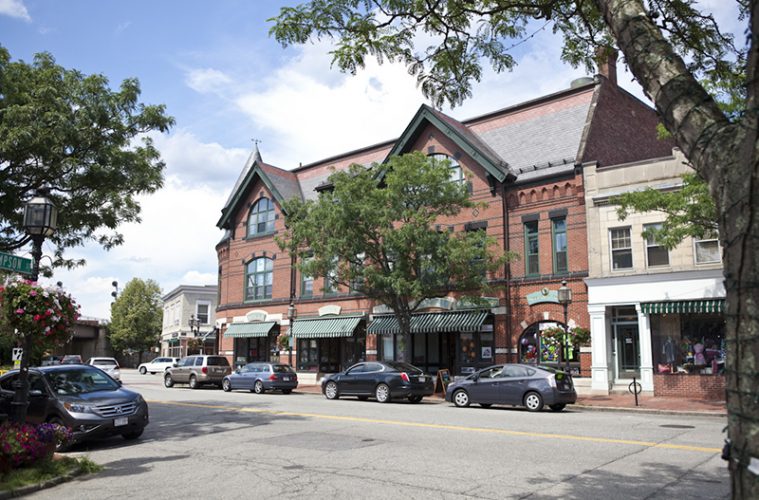With a location just under nine miles from Boston, a population of about 21,300, and two commuter rail stops, Winchester might be described as a “bedroom community.” But in reality, that term wouldn’t do the town justice at all.
“It’s really quite a dynamic community,” says Archie McIntyre, executive director of Wright-Locke Farm, a nearly 400-year-old organic community farm that’s partially owned by the town of Winchester.
In fact, the farm is a perfect example of that dynamism in action. When the town was faced with the need to sell 12.5 acres of the farm’s property, the people of Winchester rallied together to raise $8.6 million, allowing the Wright-Locke Land Trust to purchase the land in August and save it from becoming a housing development.
“The farm was so valued in the estimation of the community that we were able to raise that kind of money to save it,” says McIntyre. He says there were more than 500 donors—some who donated large sums of money, others who pledged smaller amounts. But all of them “saw this as a unique opportunity to save this property.”
It was a unique opportunity for a unique place: Established in 1638, the Wright-Locke Farm is one of the oldest continually operating farms in the country, and was owned by only three families before the town purchased it in 2007. Now, it not only raises organic vegetables and farm animals, but has a dynamic farm education program for both school children and adults, and hosts a variety of community events, like the popular “Spring Fling” on Mother’s Day, a Summer Solstice Cocktail Party, and summertime Family Farm Nights.
“It’s quite the scene,” McIntyre says. It’s also a favorite spot for weddings and other private events.
Wright-Locke Farm is only one of many fascinating, dynamic treasures that make Winchester so much more than simply a bedroom community. Among those places is the Griffin Museum of Photography, a museum founded by local photojournalist Arthur Griffin and dedicated to the art of photography. With a main location in Winchester, six additional satellite galleries in Greater Boston, and exhibitions that rotate in each location every two months, the Griffin Museum offers an ever-changing and energetic examination of the medium.
“The arts are important here, all types of art, whether it be theatre, dance, music, film, or photography,” Paula Tognarelli, the museum’s executive director and curator, says of the town. “We give the local visitor a taste of photography so they don’t have to go to New York City.”
In fact, they get a pretty hearty helping of it. Recent exhibitions have featured works by Lynn Goldsmith and Patrick Nagatani. Educational programs accompany the exhibitions, too. An examination of plastics pollution accompanied the recent False Food exhibition, in which artist and designer Jerry Takigawa used plastic debris—retrieved from the stomachs of albatross, which mistook it for food—to create arresting images that, at first glance, might be mistaken for human meals, too.
“We try to target our programming to influence and entertain and educate our public,” Tognarelli says. “We try to make the exhibitions meaningful on multiple layers.”
And in Winchester, there are even multiple layers of meaning when it comes to a walk in the woods, thanks to Winchester Trails, an all-volunteer environmental education organization that brings local classrooms into the town’s open space—which is plentiful, thanks to the Middlesex Fells—for hands-on learning.
“I think that Winchester’s a wonderful community…. It’s a small town where people care about things,” says Nancy Lin, one of Winchester Trails’ volunteer nature guides and a certified professional wetland scientist working for the Massachusetts Department of Environmental Protection’s Wetlands and Waterways Program, who manages its Outreach, Education, and Training unit. She says the people of Winchester continually “put their money where their mouth is,” whether it’s to save the Wright-Locke Farm or to fill the very-needed trail guide positions with Winchester Trails.
“I see that over and over again,” she says. “People putting in their own time, their own money for the community.”
There are also efforts to keep the town’s center and top-rated schools as lively as its other resources. Winchester High School is in the midst of a $129 million renovation, and “in 2016, a large focus will be on the town center,” says Richard C. Howard, Winchester’s town manager.
The town center is already a nice place to spend time. Howard points to the river, bookstore, lovely architecture, and tree-lined streets, as well as established restaurants and two brand-new ones: TWK [The Waterfield Kitchen] and First House Pub. But next, Winchester will look toward bringing housing to the town center, thanks to a revamped zoning bylaw allowing mixed-use development. Other possible improvements include infrastructure, parking, and streetscape improvements.
“It will capitalize on the fact that the commuter stop is right there,” Howard says of the town center improvement plan. “It’s all intended

